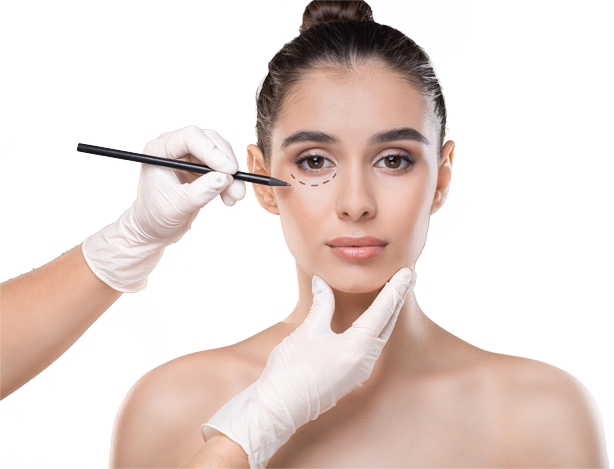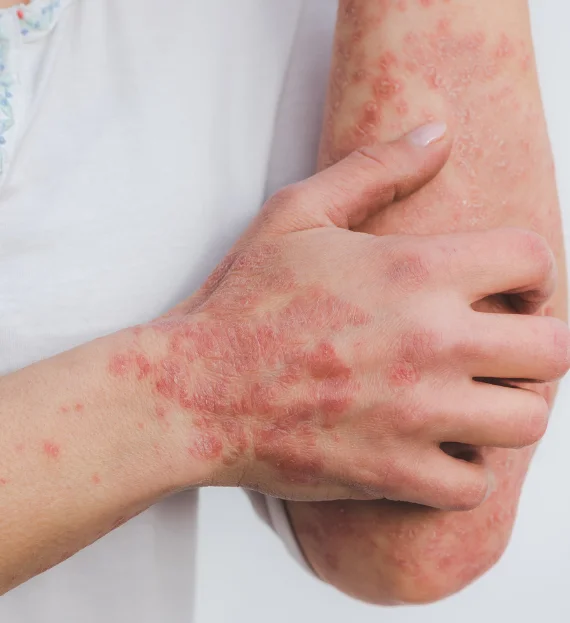Psoriasis
Most Popular Procedures
Psoriasis is an inflammatory skin disorder due to dysfunction of the immune system where red scaly raised patches appear. These patches/plaques are itchy in nature and may appear on any part of the body commonly seen over the elbow, knees r scalp.
In psoriasis, due to an overactive immune system, the skin cells complete their growth cycle in 3-4 days rather than in 28-30 days and the cells get piled up rather than shedding off causing the thick plaques.
Psoriatic symptoms can start at any age but is mostly seen to start between the age of 15-25 years. An overactive immune system and prevailing inflammation can impact other organs or tissues too.
Multiple treatment options are available although there is no cure for psoriasis. The topical treatment includes moisturizers, steroid cream/ointments, medicated lotions & shampoos, vitamin A/retinoid creams, etc. The other kind of treatment includes light therapy, PUVA, immune modifying oral therapy, etc. Additional therapy includes modification in the lifestyle to avoid triggering factors and prevent flare-ups.
Faq
Frequently Asked Questions
- Psoriasis mostly appears as red, irritated, flaky plaques of skin as symptoms on the outer elbow, knees, or trunk region. It can appear in the palms, soles of the feet, scalp, etc. The psoriatic patch is an itchy, thick patch with raised edges.
A. Psoriasis is not contagious in nature. Being an autoimmune disorder, it is caused by a combination of genetic and environmental factors.
A. There is no permanent cure for Psoriasis. It can be managed like a lifestyle disease with regular medications and self-care to control flare-ups.
A. No. Dermatologists are able to diagnose psoriasis by examining the affected body part’s skin area and with a medical history of the patient. In some rare cases, a skin biopsy might be recommended for confirming the diagnosis and rule out any other possibilities.
- the most common triggering factors for psoriasis flare-ups are as follows –
- Stress
- Changes in the weather
- Certain medications
- Infections
- Skin injuries
Certain medications
A. Yes. Psoriasis can start appearing in other body parts because of changes in the process of the immune system due to psoriasis. Rashes can start appearing in other parts of the body like the outer elbow, scalp, knee, trunk, etc.
A. Yes. It has been observed that psoriasis increases the risk for the development of lifestyle-related diseases like diabetes, cardiovascular disease, obesity, and depression
- Yes. Psoriasis can be very well managed by bringing about a few changes in lifestyle for symptom-free life is as follows –
- Following a healthy diet
- Keeping the affected skin area clean and moisten with the application of moisturizer
- While bathing, the affected area should not be scrubbed hard to avoid irritating the skin and flare-ups.
- Regular exercises
- Balanced work-life management
- Inculcating into stress-busting activities
- Avoiding triggering factors






